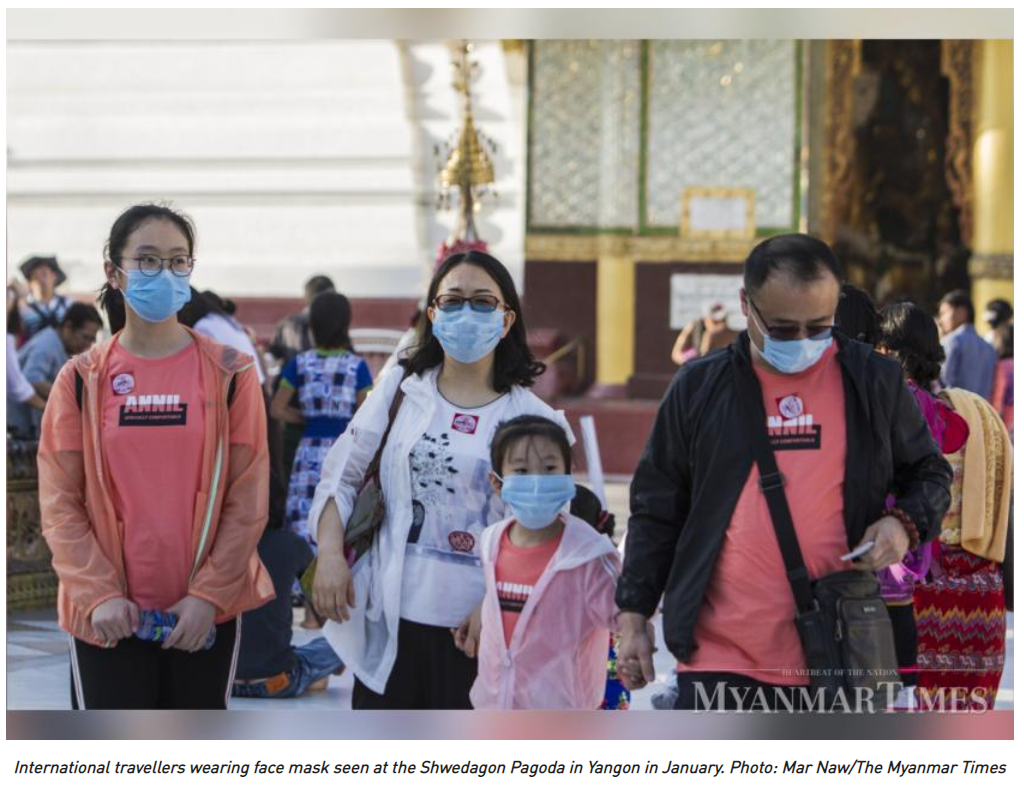IMF urges Myanmar to tackle non-performing loans after pandemic
The International Monetary Fund has urged Daw Aung San Suu Kyi’s government to tackle bad debts held by Myanmar banks as soon as the economic slowdown is over.
The IMF has agreed to provide US$700 million in emergency funding to help Myanmar address “urgent” spending needs as a result of COVID-19. The loan is expected to help plug the shortfall in foreign reserves and catalyse support from development partners.
Following approval on June 26 to distribute $356.5 million, almost half its loan quota to Myanmar, the IMF took aim at Myanmar’s suspension of international financial reporting obligations for domestic banks, a move viewed by economists as an implicit admission that some banks could fail if such measures were not carried out.
As part of the government’s COVID-19 Economic Relief Plan (CERP), the central bank had delayed the deadline for prudential controls, including non-performing loans, for up to three years.
Instead of three years, loan repayments should only be put on hold “in line with the duration of the COVID-related economic slowdown,” said Mitsuhiro Furusawa, IMF deputy managing director.
But Kenichi Izumi, executive director and chief operating officer of the Construction, Housing and Infrastructure Development Bank, argued that “forbearance for three years is reasonable because it takes time to recover from the economic shock.” The senior banker emphasised that the NPL suspension is a common practice in crisis-hit economies.
Mr Furusawa said the authorities should at least monitor the banks’ non-performing loans (NPLs) and “consider a comprehensive NPL resolution strategy.” This means allowing some banks to fail if they need to and assessing the feasibility of different resolution options.
There is currently little public information about the NPL ratio among commercial lenders. The latest central bank statistics are from 2019 and banks are allowed by the Financial Institutions Act to keep detailed financial information secret.
Statements from the IMF and the Myanmar government suggest though, that at least some bank balance sheets are under stress from NPLs and the practice of rolling over loans indefinitely for key clients is common.
“Unfortunately, we do not have up-to-date information on the severity of the problem,” said public finance specialist Andrew Bauer. “It is essential that the Union government and central bank prevent disorderly failures of any banks. Confidence in the banking sector is essential for recovery from the COVID-19 crisis.”
Nay Pyi Taw might want to recapitalise the banks that provide the most loans to Myanmar businesses, Mr Bauer suggested, but not indefinitely support banks that cannot support themselves. “Once the economic crisis is over, these banks should be made to stand on their own two feet and better meet international standards.”
Focus on external financing
With local banks not in a position to lend to the government and few other borrowing options available, Mr Furusawa said the government should prioritise external concessional financing, or borrowing from international financial institutions and bilateral donors.
IMF financing is intended as a low-conditionality emergency loan for governments facing temporary balance of payments crises due to external shocks. Myanmar has now used about half of its annual quota of financing and has expressed interest in using it all.
Over the longer term, the focus should shift to mobilising revenue and public financial management reforms “when conditions permit,” the IMF said.
Myanmar has one of the lowest tax takes in the world and the government is aware that tax collection is going to take a further hit amid the coronavirus outbreak. Announcing the CERP in late April, Daw Aung San Suu Kyi said: “The significance of COVID-19 induced tax revenue shortfalls cannot be downplayed.”
Some Myanmar-focused economists pointed out though, that the country can rely on central bank deficit financing in the short-run. Central bank financing of the government deficit is a “perfectly acceptable option” for Myanmar during this COVID-19 crisis, Mr Bauer said.
“In fact, it may be the best option to keep the economy moving without negative long-term effects. At the same time, to manage inflation expectations, the central bank should be clear that extraordinary debt monetisation will end once the crisis is over.”
Source: https://www.mmtimes.com/news/imf-urges-myanmar-tackle-non-performing-loans-after-pandemic.html


 English
English




